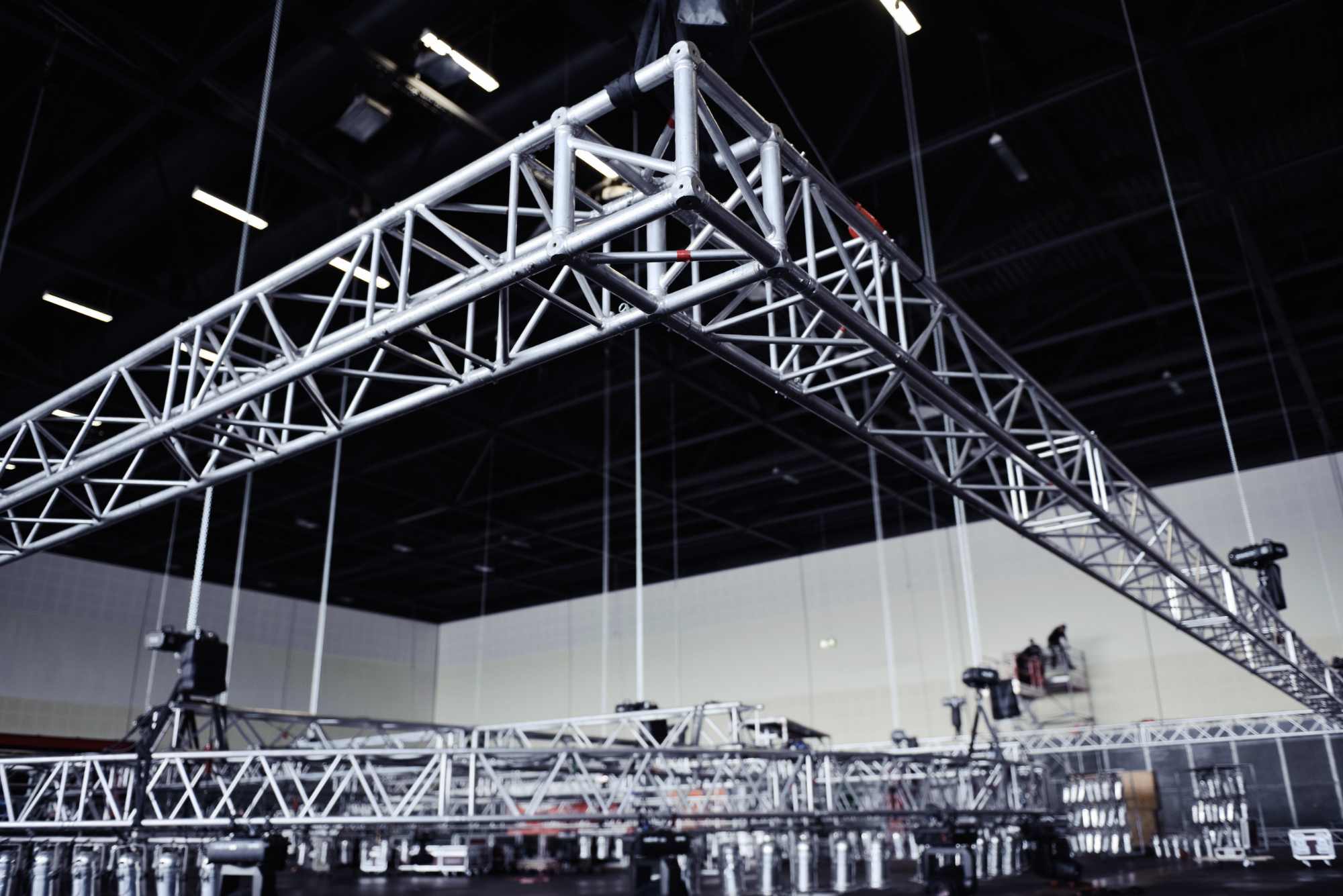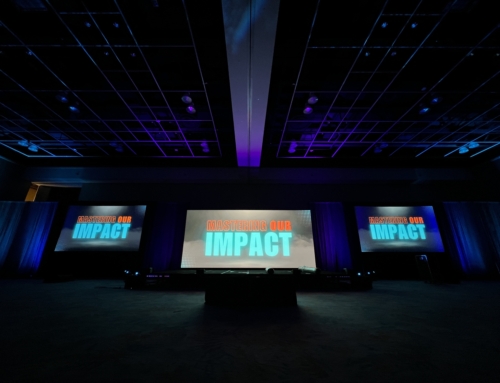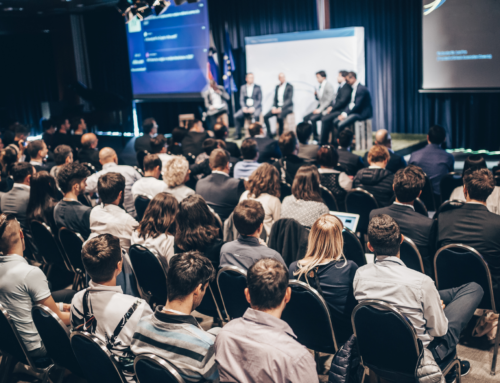Overlooking power and rigging requirements can derail even the most meticulously planned events. I should know — in my production management career, I’ve lived through a handful of nightmare scenarios that could have been avoided.
In this post, I’m sharing exclusive insights to help you navigate these technical challenges and ensure your next hotel-based event runs smoothly.
The Importance of Power and Rigging Planning
It’s easy to get caught up in the exciting aspects of event planning, like venue selection, catering, and guest experiences. However, neglecting the technical side — particularly power and rigging needs — can lead to disastrous consequences.
I’ve watched event planners check all the boxes for location, hospitality, and aesthetics, only to hit a wall with power limitations or inadequate rigging points. These oversights force last-minute changes to set designs, equipment choices, and even overall event concepts.
In the worst cases, they completely sabotage an otherwise well-planned event.
Your set design and equipment won’t function properly without the right power and rigging. To avoid last-minute scrambling, learn about your hotel’s limitations ahead of time.
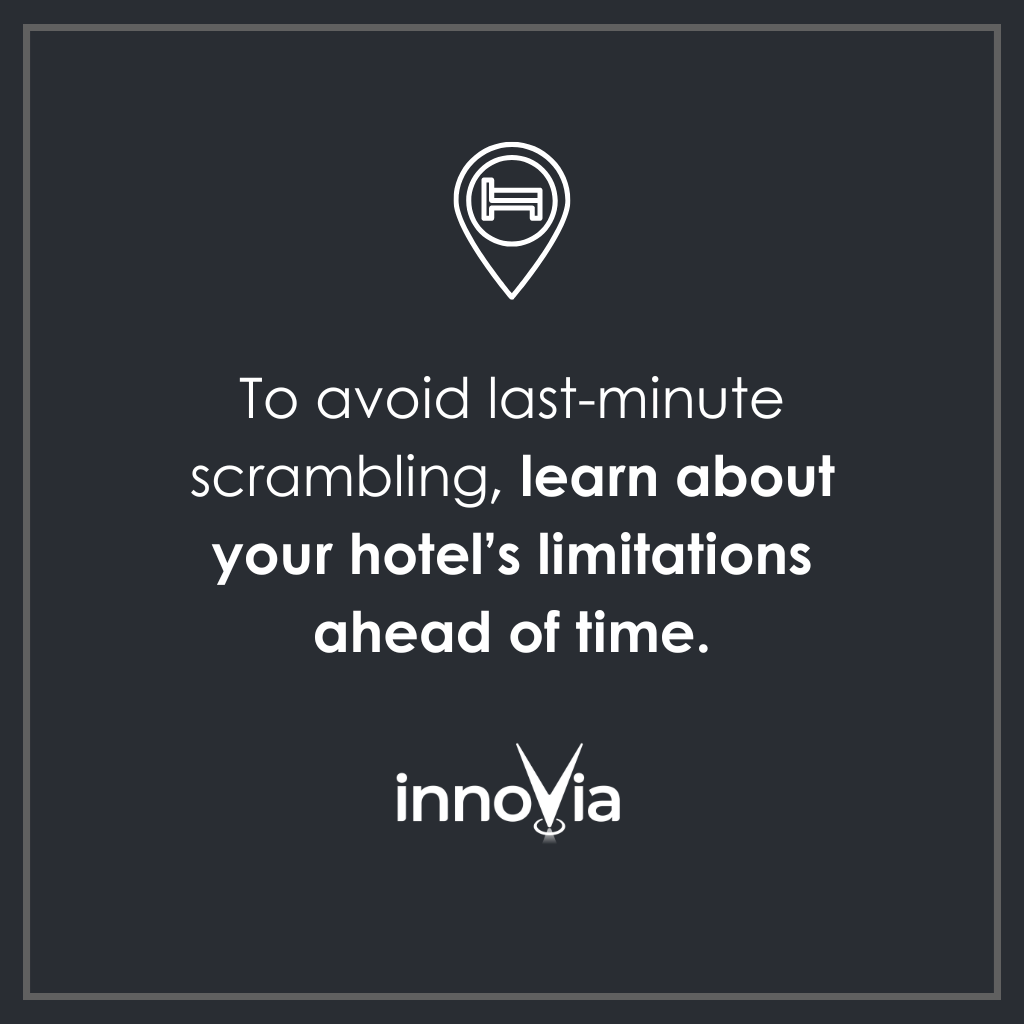
Common Power and Rigging Needs
Power and rigging needs vary depending on your event’s scale. Here’s a quick overview:
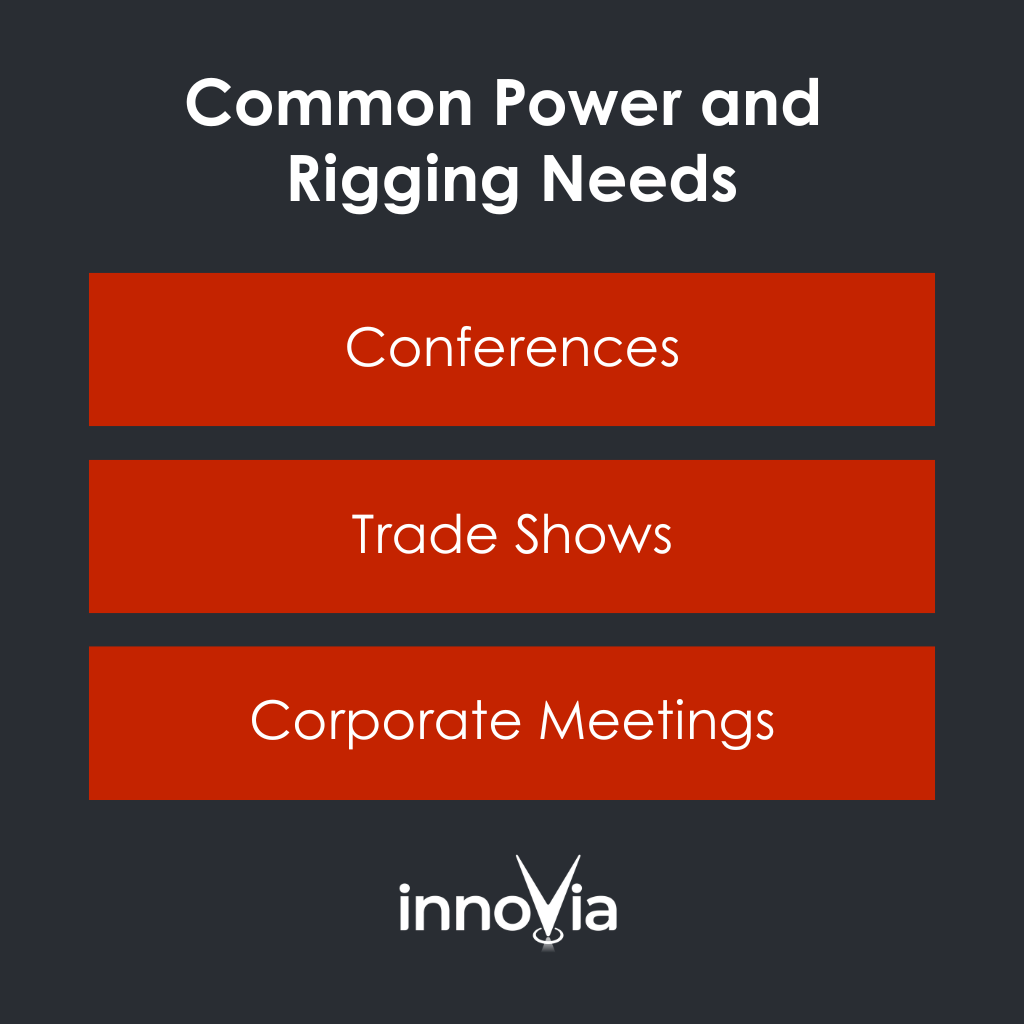
- Conferences: May require anything from basic single-phase power to more complex three-phase setups.
- Trade Shows: Often need several 20-amp services for individual booths, with more substantial power needs for larger or more elaborate displays.
- Corporate Meetings: Requirements range from simple wall outlets for small breakout sessions to extensive power distribution systems for large general sessions with complex lighting, audio, and video setups.
It all depends on your equipment’s complexity and your technical needs. I’ve handled some events that needed as little as a 60-amp, single-phase service, but I’ve also worked events requiring power distribution equipment with three-phase capabilities to run extensive lighting rigs and video walls.
The more equipment you bring in, the more power you’ll need. Knowing your requirements ahead of time ensures you get enough power and rigging capabilities from your hotel without over-ordering, which can be a costly mistake.
An experienced event technology partner can help you find a hotel with everything you need, especially if you bring them on early in the preplanning and designing process. Here at innoVia Productions, we calculate our clients’ power needs ahead of time, then use that information to find the perfect hotel for their event.
Navigating Hotel Power Capabilities and Regulations
Every hotel has its own event policies and regulations. Typically, this won’t affect your event planning experience, but you still need to be prepared to address some challenges:
Power Capabilities
At most hotels, power isn’t an issue; everything from projectors to video walls receives the power it needs to function at its best.
However, certain hotels have limited power (they’re rare, but they do exist!), so you may not be able to use some of the lighting or technology you planned to include.
Exclusivity Agreements
When a hotel asks you to sign an exclusivity contract, it means the hotel has an in-house or preferred AV company that event organizers are required to work with.
In this case, bringing in outside event technology can incur steep fees, but the in-house company will probably charge its own fees anyway. You’ll have to pay for power, equipment, and labor just to work with people who don’t know you or your event.
Luckily, all hotel contractual details can be negotiated before you sign your contract. At innoVia, we’re happy to step in and negotiate the best deal for you. We can work with the hotel to reduce or waive fees — as long as you start the conversation with us early enough.
Alternate Solutions for Inadequate Power
Sometimes, you may find that your chosen venue can’t accommodate your power needs.
In such cases, consider these options:
- Reassess and Prioritize: Determine what’s most critical for your event. Can you make design alternatives that require less power without compromising the program’s core objectives?
- Bring in Additional Power: Consider using generators, but be prepared for the complexities this entails, including additional costs for equipment, labor, and permits, as well as the logistical challenges.
- Change Venues: If compromising on your power needs isn’t an option, you may need to consider a different location. However, be mindful of potential contractual clauses for cancelling an event.
Key Power and Rigging Questions for Event Planners
Avoid issues down the road by asking questions early and often during the planning process. Here are the most important questions to ask your hotel before finalizing your booking:
- Do you have exclusivity agreements for power and rigging? If so, what fees can we expect?
- Is exclusivity negotiable? Will the hotel concede some costs?
- Does the hotel have ample power available? Do some rooms have limitations?
- What are the ceiling heights? Is there enough space for trusses, motors, and other rigging equipment?
- Do general session rooms have pre-installed rigging points?
- Will obstructions in the room, such as chandeliers, interrupt our set design?
Consult with your event technology partner as you negotiate with your venue. They may ask additional questions based on your specific needs. They can also advise you if you’re not sure how to interpret the hotel’s answers to these questions.
Start Your Planning Process Early — Or Else!
I can’t stress enough the importance of early and thorough planning.
In my career, I’ve only been surprised by power or rigging issues on the day of an event a few times — and that’s no accident. It’s the result of meticulous pre-planning and asking the right questions well in advance.
So, to ensure your event’s success:
- Engage your AV partner early. Their expertise is invaluable in assessing technical needs and communicating them effectively to the hotel.
- Understand your event’s requirements before negotiating with venues.
- Ask detailed questions about power and rigging capabilities. Don’t shy away from discussing exclusivity agreements.
- Be prepared to problem-solve and prioritize if faced with limitations.
- Always have a backup plan, whether it’s adjusting your design or considering alternative power sources.
By prioritizing these technical aspects early, you’ll be equipped to avoid disasters and deliver a successful event. That’s why we at innoVia encourage event stakeholders to partner with event technology teams and start asking the right questions as early as possible.
Are you ready to start a conversation about your next event? Learn more about innoVia today.

